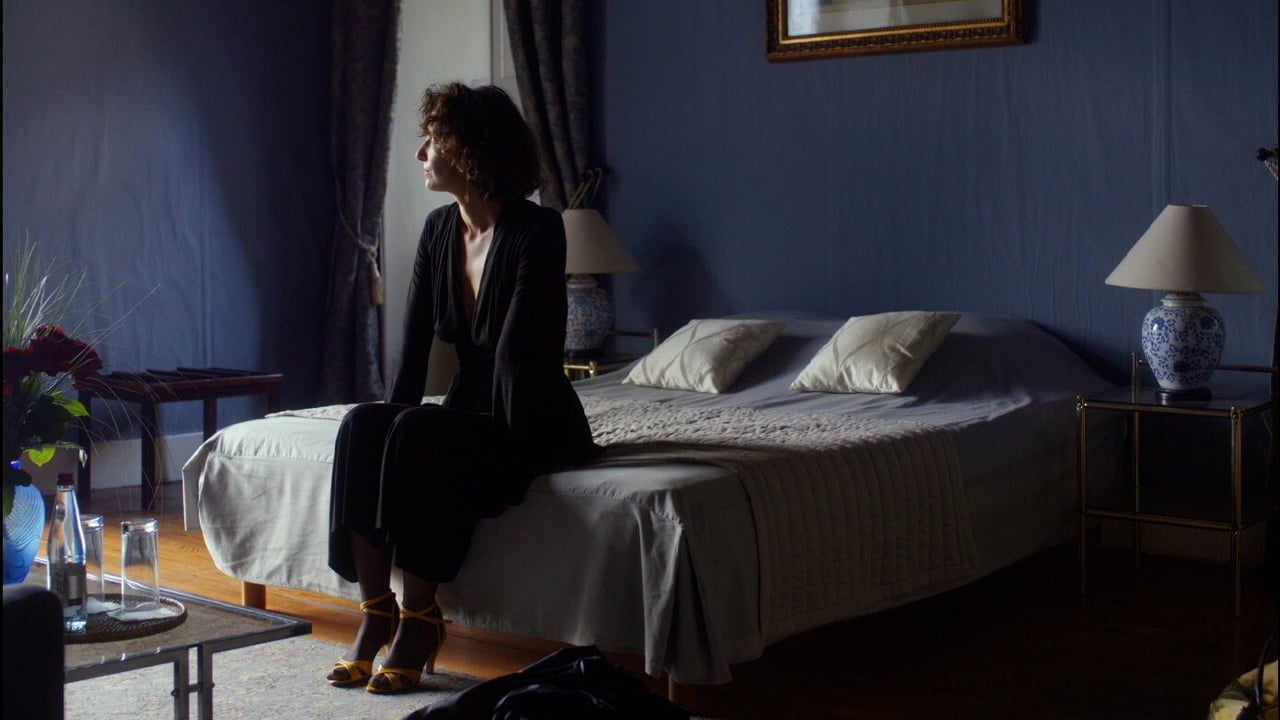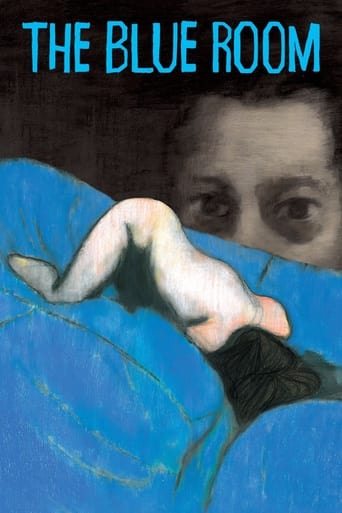

I started to watch the film after midnight and it was slow. I was sure I'd be asleep soon but the slow pace was matched with constant small pieces of the puzzle being put into place. The acting is good but also fairly monotone but since half the film deals with incidents in police custody and after some terrible deaths - you can see why the people would not be especially expressive.SPOILERS AHEAD. I like that I could not be sure who the murderer was. Some have said they are sure it is one person or the other but I would argue that you can't tell from the film.Julien is often seen as the patsy in the film and I suspect he is. But I also would not put it past him to be the murderer esp seeing his anger when his wife was on the latter. But I think he loved his daughter too much to murder her mother.Delphine, Julien's wife, is a victim but there is something else going on. Much of her behaviour seems typical distant couple but we wonder if she knows of the affair, she seems esp distant in some scenes esp her reasons for not smiling while on the ladder and esp when she reacts so strongly hearing of the death. Makes you wonder if there was not another affair going on.Ester appears to be the person behind the murders as she clearly infatuated with Julien (although the dynamics are not there to explain why). Yet her correspondence with Julien is very casual. Four letters in five months? Cool to him in the drugstore. If nothing else when Julien bangs her head in the magistrate's office - you think that would stop any casual sense of love.Nicholas' mother at one point could easily be the murderer. She had motive and opportunity. We see that at the end of the story very well. Some are sure she is. It wouldn't explain Delphine but Nicholas could have known of the affair, and knowing he didn't have long to live, took his own life so that his wife and her lover would be blamed.Not understanding the French legal system then it is difficult to understand how they were convicted.There was mixed testimony on if Nicholas was even poisoned or not. So if you can't say for sure he was poisoned then was it murder?The discussion of the letters was common yet they didn't exist. At one point his lawyer says "letters that she shays she wrote". There seemed to be much discussion on the interpretation of those yet they didn't exist anymore.After the husband's death and it might or might not be murder then the murder of Delphine is just so obvious. It's clearly murder. It's going to be investigated. Since both of them seemed to feel that others knew of the affair esp the chamber maid then there was no way it wouldn't lead to an re-examination of the husband's death.For Julien the only evidence was that he picked up some homemade jam for his wife, that she normally orders, and dropped it off at the house and returned to work. The fact he was behind the building and was there for "minutes" is silly. We all sometimes get into our car and don't leave. We daydream, listen to a song on the radio, plan our next steps in the day. And if I were going to open and poison a bottle of jam then why would I do that anywhere near people. Also if it was a conspiracy then it is more likely Ester would have poisoned it at work at the drugstore.We often say who has the most motive with any death. In this case the death of the husband and the wife link to a couple having an affair. An affair that seems to be over for months and could be easily proved with testimony of the hotel clerk etc. Yet it seems clear that two people benefited from the death of Nicolas - his wife and his sister. His sister who said in court that she thought her sister-in-law married only for the money. If "everyone" knew of the affair then so did the sister. In fact she would likely be the person told first. So her brother is dying and she will have to share the business with her sister-in-law who was cheating on her brother. So what better way to get back, and working in a drugstore would have the means, then to poison the brother (maybe with his agreement) and then since the jam was with her at the drugstore - the jam. It would be easy to know that only the wife ate that jam so you don't risk poisoning the husband or daughter.In the end it is the sister who benefits all around.
... View MoreJulien Gahyde (Mathieu Amalric) and Esther Despierre are former classmates and having an affair. Julien is married to Delphine with a daughter Suzanne. When Esther's pharmacist husband is found dead, Julien is brought in by the police for an interview. Then Delphine is found dead and the police suspects poisoning.I find this a muddled, confused, and flat telling of a possible murder mystery. The odd thing is that it's deliberately muddled, confused and flat. It's reworking the traditional crime drama. It's admirable but I don't think it works. The tension is all gone. There are no thrills. I don't think we even see the dead bodies. Mathieu Amalric is a great actor but the flat telling keeps the audience at a distance from the characters. There are moments where one gets glimpses something deeper in his character but he keeps the mask on for most of the movie. It's hard to say if the truth is revealed and that's kind of the point of the movie.
... View Morenot an ordinary adaptation. the spirit of many contemporary French films. Mathieu Amalric using same tools to build his character. a Simenon in different manner. a cold film about relationship and decisions, about guilty and events who has a strange touching manner to surprise the viewer not for evolution of events but for the attitudes of characters. a film of silence and guilty out of facts. because it preserves the Greek mark of destiny, the poetry of things, the emotions as a kind of fog. nothing clear, each detail as part of a sort of ambiguity and slow rhythm of events. a film with a specific target who could seems be boring for many. but useful with few drops of patience. and with a crumb of interest for Simenon universe.
... View MoreWhat if there was a crime drama and no one cared who did it? You'd have The Blue Room. I went to see this film because I'm a fan of foreign films. They generally paint very different pictures of people, places and daily life than we get from Hollywood. Even poor foreign films give me glimpses of interesting people and places or a story that makes me think. This film had absolutely none of those qualities. The characters are depressed, bleak and boring. The nudity wasn't the least bit erotic. There is no sense that anyone cares for each other in any meaningful way, not even a father for his daughter or vice versa. The two main characters are having an affair but their spouses don't seem to notice or care who does what all day. I was hoping I'd feel sorry for his wife, but I didn't because she was nearly as boring and lifeless as he was. Even the police detectives seem to be bored with the whole affair. There is one good thing about this movie however: it's short... only about one and a half hours until it is mercifully over.
... View More